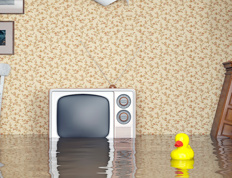



Call your insurer as soon as possible. He’ll ask you to describe the exact circumstances of the loss in order to establish whether your policy covers the damages.
Depending on the type and extent of the insured damage, he will tell you what to do.
If you own a condominium unit, contact the condominium’ corporation immediately. Its insurer could be involved in the claim depending on which portions of your unit are damaged.
Take measures to limit the damage and protect belongings that are not damaged. Ex.: move your belongings upstairs; in case of water damage, remove the water that has seeped in immediately; clean and dry them.
If you need to do emergency repairs to prevent further damage, keep the invoices and/or receipts. If possible, do not make any permanent repair before discussing it with your insurer.
Keep invoices and vouchers for expenses.
In case of a fire or an earthquake, do not go back into your home without first having obtained the authorization of the competent authorities.
In the case of water damage, close gas lines and turn off the power making sure you’re not standing in water.
Talk to your insurer to find out what compensation you are entitled to, where applicable. Ask for a cash advance, if needed. Keep all receipts and invoices for lodging and food expenses incurred following the loss.
Make a list of the items destroyed;
Take photos or a video to document the loss;
Unless they’re a health hazard, do not throw out damaged items right away. And do not make permanent repairs before speaking to your insurer.
You will need a police report to make your claim to your home insurer. Check with your local police force for the procedure to follow.












